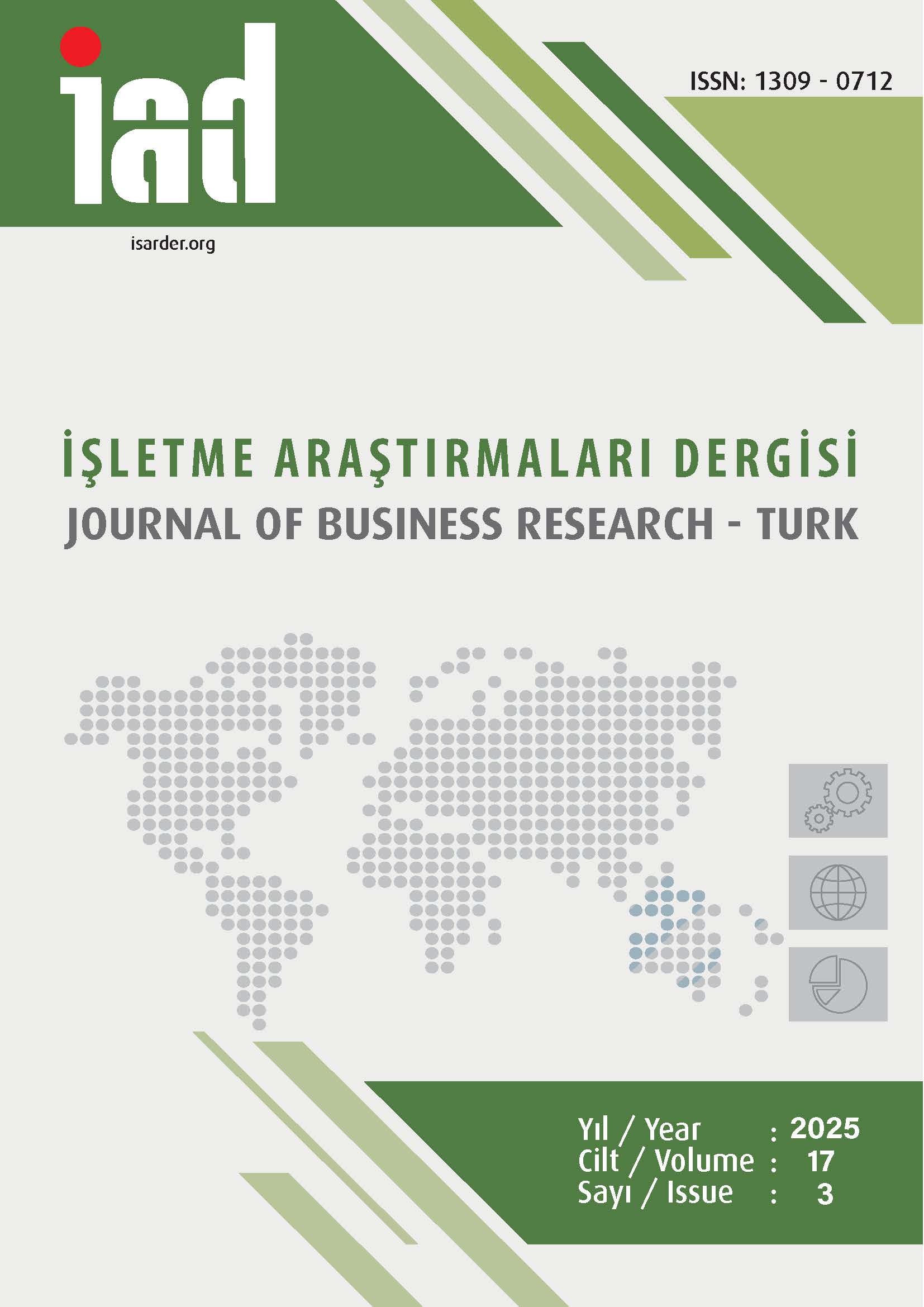Öncül ve Ardıllarıyla Psikolojik Sahiplenme: Sistematik Bir Tarama
DOI:
https://doi.org/10.20491/isarder.2025.2103Anahtar Kelimeler:
Psikolojik Sahiplenme- Sistematik literatür taraması- Sahiplenme duygusu- Sistematik derlemeÖzet
Amaç – Psikolojik sahiplenme konusunda yürütülen makalelerin ulusal alanyazın çerçevesinde incelendiği bu araştırmanın iki temel amacı bulunmaktadır. İlk amaç, psikolojik sahiplenmenin kavramsal yapısını ortaya çıkarabilmek; ikincisi ise, kavramın etkileşim içinde olduğu bağımsız, bağımlı, aracı ve düzenleyici değişkenleri belirleyebilmektir.
Yöntem – İlgili amaçlar doğrultusunda “psikolojik sahiplenme” anahtar ifadesi Türkiye Akademik Arşivi, EKUAL, DergiPark, Sobiad Atıf Dizini, TRDizin veri tabanları ve Google Akademik üzerinden taranmıştır. Tarama sonucunda 256 adet potansiyel dokümana ulaşılmış, dokümanlara çeşitli dahil etme ve hariç tutma kriterleri uygulanmıştır. Uygulama sonucunda, araştırma sorularına yanıt verebilecek 38 doküman MAXQDA’24 programı üzerinden analiz edilmiştir.
Bulgular – Analiz bulguları; çalışmaların 2020-2024 yılları arasında yoğunlaştığını, araştırmalarda en sık Van Dyne ve Pierce (2004) ve Avey, Avolio, Crossley ve Luthans (2009) tarafından geliştirilen ölçme araçlarının kullanıldığını, en çok araştırılan öncül değişkenlerinin iyi liderlik özellikleri, örgütsel destek, uyum, psikolojik güçlendirme ve örgüt iklimi, sonuç değişkenlerinin ise bağlamsal performans, görev performansı ve işe tutkunluk olduğunu göstermektedir.
Tartışma - Çalışmada elde edilen sonuçlar uluslararası alanyazınla kısmen uyum göstermesine karşın, bazı değişkenlerin Türkiye örnekleminde yürütülen çalışmalarda ölçülmediği görülmektedir. Araştırmanın son bölümünde, araştırmadan elde edilen bulgular tartışılmakta ve konu hakkında çalışmalar yürütmek isteyen araştırmacılara çeşitli öneriler sunulmaktadır. Çalışmada sunulan önerilerin, örgütsel davranış literatürüne katkı sağlayacağı düşünülmektedir.
İndir
Yayınlanmış
Nasıl Atıf Yapılır
Sayı
Bölüm
Lisans

Bu çalışma Creative Commons Attribution-NoDerivatives 4.0 International License ile lisanslanmıştır.





